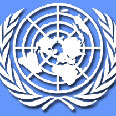
US distances itself from UN rights body
State Department spokesman: UN Council on Human Rights has a rather pathetic record
In an attempt to further distance itself from the UN Human Rights Council, the United States said on Friday it would only engage the body when there was an issue of "deep national interest."
State Department spokesman Sean McCormack said the decision, taken recently by US Secretary of State Condoleezza Rice, reflected mistrust of the 47-member state forum, at which the United States currently has observer status.
"Our skepticism regarding the function of the UN Council on Human Rights in terms of fulfilling its mandate and its mission is well known. It has a rather pathetic record," McCormack told reporters.
"We will engage the Human Rights Council really only when we believe that there are matters of deep national interest before the council ... We are going to take a more reserved approach," he added.
The United States has quietly informed Western allies of its intention to walk away from the United Nations Human Rights Council, diplomatic sources said earlier Friday.
The US delegation has observer status, with the right to speak, in the human rights forum, which meets in Geneva, and has never stood for election to the Council since it was set up two years ago.
Diplomatic sources and rights activists said that US officials had informed the European Union on Friday morning of its intention to halt its involvement in the Council.
"They said they were going to disengage totally," said one representative of a rights watchdog group.
In a Council debate on Friday on the situation in Myanmar, the United States failed to take the floor on a topic on which until now it has always been vocal, a possible sign that it had little further interest in the body. The Council replaced the widely discredited UN Commission on Human Rights.
But it is seen by critics as having fallen under control of a bloc of Islamic and African countries, which have a majority when backed by their frequent allies Russia, China and Cuba.










